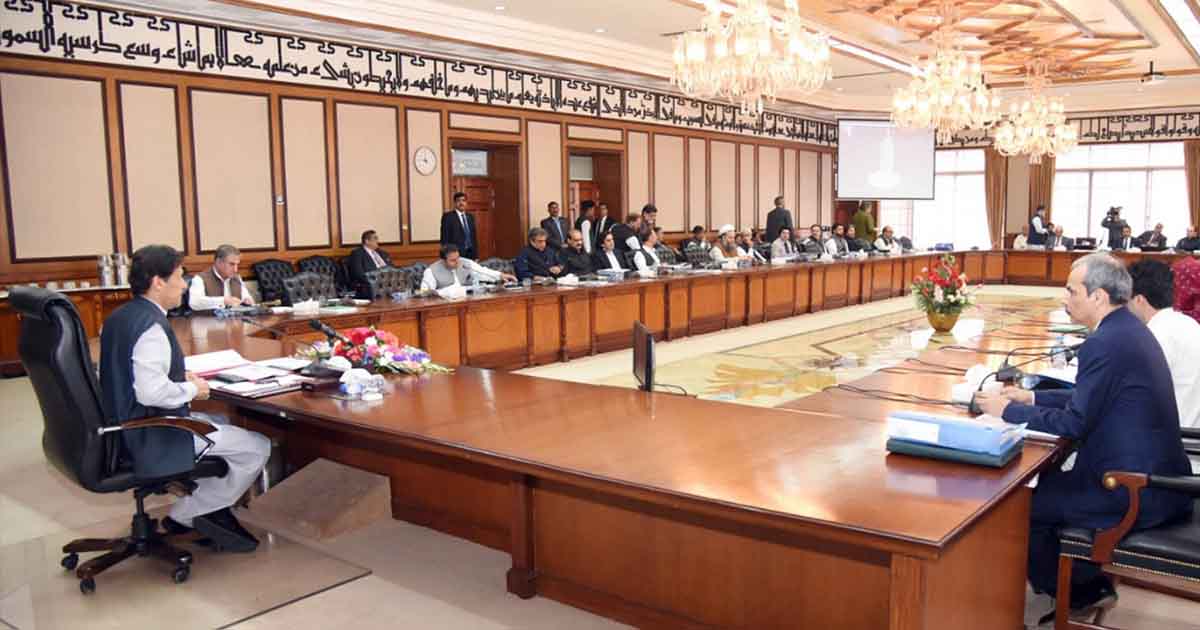News Desk |
The federal government has approved the drought plan put forward by the Provincial Disaster Management Authorities of Sindh and Balochistan, however, given the restrictions of the 18th Amendment, the federal government will not be providing any further funding.
The Provincial Disaster Management Authorities (PDMAs) of Sindh and Balochistan had approached the federal government for a contribution to their drought relief program to uplift families who had suffered across the provinces. Acting upon their request, the National Disaster Management Authority (NDMA) crafted a comprehensive plan worth Rs4.25 b to hand out ration bags to the drought-hit families.
PM Imran Khan approved the plan with a provision stating that the federal government will not allocate any funding to facilitate this programme.
NDMA had prepared a plan which was tabled before the cabinet for its approval. In a recently held meeting, the cabinet was briefed that at present, there are around 5 million people and livestock in Sindh and Balochistan that have suffered the damages of the drought. Provincial governments have undertaken drought relief measures, however, a large number of families have not yet been provided aid.
Read more: Taking steps to uplift weak segments of society: PM Imran Khan
NDMA’s Proposals for Drought Relief
In order to assist these drought-stricken families, the PDMAs of Balochistan and Sindh have requested the NDMA to come to their aid. NDMA provided a summary to the cabinet, awaiting Prime Minister Imran Khan’s approval for the ration bag project, which costs Rs4.25 billion a month.
Upon consulting with the provincial drought management authorities of Sindh and Balochistan, along with UNOCHA and other donor agencies, the NDMA drafted a jointly coordinated drought response plan on 22nd January 2019. The cabinet was informed that NDMA also sought the assistance of UNRC in preparing its drought response plan.
Provincial governments have undertaken drought relief measures, however, a large number of families have not yet been provided aid.
The drought response plan focuses on short, medium and long-term measures to be carried out in a period of one year in order to identify and manage challenges related to food, security, health and nutrition, education, protection of women and children, agriculture and livestock amongst others.
The plan is worth $96.3 million and the UNOCHA has approved a grant of $10 million to facilitate this project. UNOCHA has also agreed to provide an additional $1 million, with the possibility of allocating more from the reserves in the Pakistan Humanitarian Pool Fund (PHPF).
Read more: PM Imran Khan and Afghan President Ghani Agree to Improve Bilateral…
No Federal Funding will be Allocated
The cabinet was briefed on all these developments, along with the fact that this plan had been presented to the Prime Minister for his approval. Prime Minister Imran Khan had ordered a committee, led by the former Finance Minister Asad Umar, which will be tasked with the responsibility of examining the drought response plan and forwarding their recommendations to the cabinet.
The cabinet was informed that NDMA also sought the assistance of UNRC in preparing its drought response plan.
The committee, led by former Finance Minister held a meeting on 11th March, 2019 and was attended by the representatives of the drought-hit region, including National Assembly deputy speaker Qasim Khan Suri, Minister for Inter-provincial coordination Dr. Fehmida Mirza, and the Director General of the Provincial Disaster Management Authority (PDMA) Balochistan.
The committee suggested that NDMA’s drought response plan for 2019 can be approved without the allocation of any funding from the federal government. This recommendation was put forward in the light of the restricted functions and role of the federal government after the 9th NFC Award and 18th Constitutional Amendment, which allocates a significant number of the resources to the provincial governments.
Acting upon these recommendations, the cabinet, led by PM Imran Khan approved the plan with a provision stating that the federal government will not allocate any funding to facilitate this programme. Sana-Ullah Baloch, member of the Balochistan Assembly and senior leader of the Balochistan National Party, observed that the Balochistan government failed to put forward a substantial case in its request to the Federal government.
Read more: Pakistan will sail through difficult times, will emerge as great nation:…
Sharing his views on Twitter, MPA Sana-Ullah Baloch noted;
“It was obvious since #Balochistan Govt didn’t approach Federal Govt on time & neither pleaded for substantive support for #Drought affected areas such demands are always thrown away.”
A recent report by the World Bank titled ‘State of Water Supply, Sanitation and Poverty in Pakistan’ has recorded that amongst all the provinces, Balochistan is the poorest, and is severely affected by economic challenges which are worsened by shortage of water supply, droughts and flash floods amongst other natural calamities. Only 6% of the land in Balochistan is suitable for irrigation, and lack of water resources has further depleted agricultural growth.
Balochistan and Sindh are challenged with extreme shortage of water supplies, and their human development and economic challenges are further aggravated due to their ethnic diversities, traditional patriarchy that restricts women from entering the workforce, along with widespread illiteracy. The two provinces have suffered devastating damage due to water scarcity and drought.














